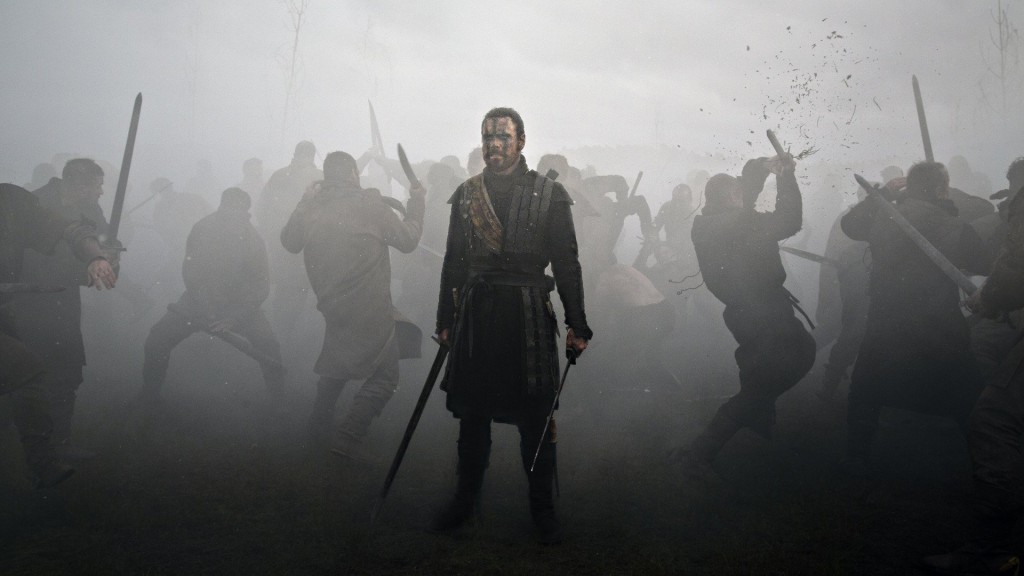Cannes: Macbeth review
 It’s the curse of any film based on well known material that the audience might spend a significant amount of their viewing time considering the ways in which the source has been adapted. Anyone familiar with the ‘Scottish Play’ will go through director Justin Kurzel and screenwriters Jacob Koskoff, Michael Lesslie and Todd Louiso’s version of Macbeth noticing the changes to Shakespeare’s original, from additions and subtractions to the more subtle shifting of implication with certain lines of dialogue.
It’s the curse of any film based on well known material that the audience might spend a significant amount of their viewing time considering the ways in which the source has been adapted. Anyone familiar with the ‘Scottish Play’ will go through director Justin Kurzel and screenwriters Jacob Koskoff, Michael Lesslie and Todd Louiso’s version of Macbeth noticing the changes to Shakespeare’s original, from additions and subtractions to the more subtle shifting of implication with certain lines of dialogue.
The picture begins with a somewhat radical change, with Macbeth (Michael Fassbender) and Lady Macbeth (Marion Cotillard) at the funeral of their child, a young baby who they lay to rest with stones across its eyes. Lady Macbeth’s position as a mother has always been debated, but here it is made explicit, and this certainly provides an interesting new view on these two new characters.
In this telling, the Macbeths start out as grieving parents, perhaps already twisted by those complex emotions and attendant cloud of darkness. While this is certainly an interesting, subtle twist, it’s just the beginning of what troubles this adaptation. The newly provided motivation may make for a different, intriguing way into these characters, but it provides a baseline of grim emotional darkness onto which Kurzel continues to add more grim emotional darkness. Then some more grim emotional darkness. And then some more.
Overall, there is a lack of modulation in the two central characters’ emotional states. Macbeth begins to go quite fully mad in later scenes, but the audience will have already had him pegged as way off-centre and careering on a not-exactly even keel to begin with. This lack of peaks and troughs continues in other storytelling choices, with the film failing to present an all-round lack of escalation and conflict despite the extreme events which occur.
Kurzel dutifully sticks to the text when it comes to the dialogue, at least for the most part, but the cast do not seem as committed to the words as they are to their physical performances. Fassbender and Cotillard are two of the best actors working today, and they can write deep emotions and great pain across their faces with apparent ease.
But when they speak, the words seem to be coming out of nowhere, and always at the same, unchanging pitch of passion. The play’s highly strung soliloquies are recited in an almost somnambulant manner at times, and stretches of the film slow down when it should be grabbing at the audience ferociously.
There are no such problems when it comes to the film’s wordless expressions of narrative and meaning. Between this and the slow burn minimalism of his last feature, Snowtown, one wonders if Kurzel was perhaps born a few decades too late for his true calling as a fine craftsman of silent cinema.
A great deal of Macbeth has been shot outside, as opposed to most productions’ preference for soundstages and interior castle settings. Kurzel has made superb use of the stunning landscape, aided by cinematographer Adam Arkapaw’s expressive flair, and there is an extraordinarily claustrophobic atmosphere that makes the mountain backdrops feel like prison bars for the characters, and the creeping fog a portentous sign of a darker future.
The oppressive score by Jed Kurzel adds further to the sense of confined unease, booming and growling over the film, destroying any chance the audience might have had to take a breath amongst the thick fog.
Everything has worked in creating an impressive feeling and strong atmosphere, but Macbeth suffers deeply from starting at a very high gear and then never leaving it. This is a technically impressive feature and it’s likely to consume and overpower its viewers even as it fails to dramatically or emotionally engage them.